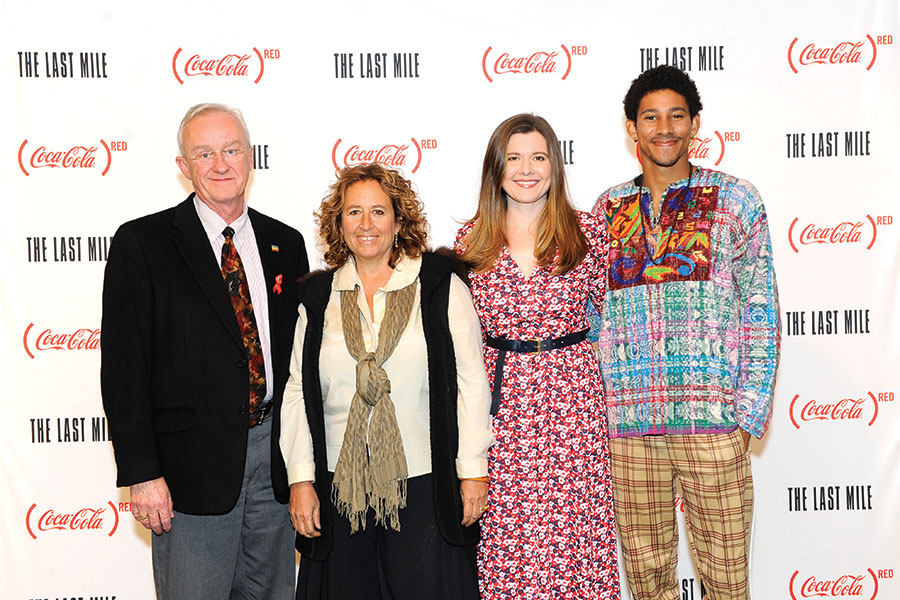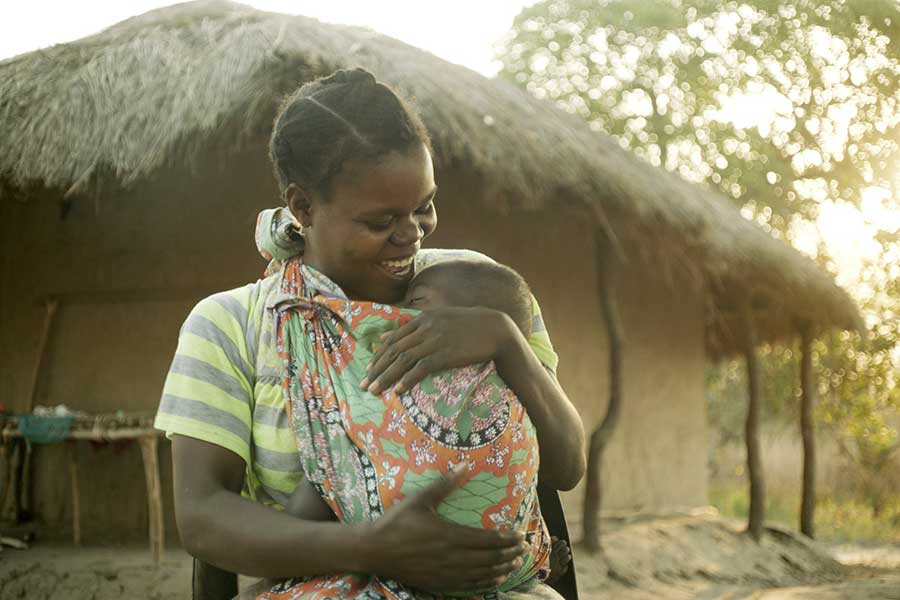On World AIDS Day this year, the same questions are still being asked: Can we have an AIDS-free generation? Can there be zero AIDS cases and zero AIDS-related deaths? The answer, according to several participants in a recent film screening and panel, is yes — if we raise enough awareness and funds.
The overwhelming message that came out of a panel discussion this week moderated by out queer actor Keiynan Lonsdale (“Love, Simon”) is this: We cannot be complacent and think that the disease is under control. AIDS is still a battle that is being fought daily. Although 22 million people are receiving treatment today, 1 million people died of AIDS last year — 70 percent of them in Sub-Saharan Africa.
A short documentary entitled “The Last Mile,” made in partnership with (RED) and the Coca-Cola Company, is now available online at red.org/cocacola. Director Kim Snyder weaves together stories about the current HIV epidemic in Sub-Saharan Africa and the impact Jonathan Demme’s landmark 1993 film, “Philadelphia” — the first Hollywood film about AIDS — has had over the past twenty-five years.
The short and the feature, “Philadelphia,” were screened earlier this week, with Snyder, Kevin Burns, executive director at Philadelphia’s Action Wellness (formerly Action AIDS), and Meaghan Condon, Director of Partnerships, (RED), in attendance. They spoke about where we have been since the start of the AIDS crisis and how far we have come, but also that we still have one “last mile” to go to end this global pandemic.
The documentary’s title, “The Last Mile,” refers to the literal journey of Veronica, a healthcare worker in Africa, who travels to deliver medicine and consult with her HIV-positive patients. Veronica’s “house calls” are her efforts to urge clients — such as Luisa, a pregnant woman — to get tested. Veronica is part of the effort to end mother-to-child transmissions of HIV in Africa.
“An AIDS-free generation is well within our reach,” Anne Carelli, senior manager of content and partnerships at Coca-Cola, told PGN at the event. “It’s an achievable goal, but we’re at a point where it would be dangerous to stop the funding and the awareness.

left to right: Kevin Burns, Kim Snyder, Meaghan Condon, Keiynan Lonsdale Photo: Michael Perez/The Coca-Cola Company/AP Images
Project Last Mile works to get AIDS medication to areas in Sub-Saharan Africa where NGOs and governments aren’t able to make inroads. Coca-Cola will donate $2 million (as it has for the past three years) to help with programs such as empowering women to talk about AIDS and create films like “The Last Mile.”
Snyder acknowledged the importance of making a documentary about Veronica. “I like to tell self-empowered stories, not white-savior stories. Veronica is on the ground, doing the work and representing rural communities where these drugs don’t often get to.”
But Snyder was also moved by “Philadelphia” and recounted where she was when that film was released. “I lived in Manhattan in 1993 and you couldn’t go anywhere without being affected. I had many friends in the throes of the crisis. It was terrifying. Demme’s vision reached mainstream people who didn’t know a lot about AIDS or thought they might not care. He did that by framing ‘Philadelphia’ as a film of social justice,” Synder said. “It had a big impact on me.”
“The Last Mile” aims to bring that same advocacy and awareness to the AIDS crises in Sub-Saharan Africa.
(RED)’s Condon cited a need for compassion. “‘The Last Mile’ brings that out. You see it in ‘Philadelphia.’ It shows the sameness of people — gay or straight, positive or negative, living in Philadelphia or Mozambique. We’re all in this human experience together. I see that in this generation with people rising up and speaking out and using their voice on issues that they care about. ‘The Last Mile’ tells real human stories of how people are battling HIV in their communities today, and that human connection that can really spur [action].”
For Burns, who started as a volunteer at Action AIDS 30 years ago, the progress is visible. He said, “We changed our name from Action AIDS to Action Wellness to reflect the progress of care and treatment of people with HIV. If there were enough political will and resources, we could get to zero deaths.”
Burns and Action AIDS were integral to the making of “Philadelphia” 25 years ago. Scenes were shot in the organization’s offices and many of the clients in the film were extras. (One, Suellen Kehler, still survives today). Burns and others provided technical assistance to issues around the disease to Demme and Hanks.
Burns looks back on the experience and the film with fondness. “It was an opportunity to be involved and make a difference and have these voices heard. I think the film is a snapshot of a point and time in the pandemic. Hanks’ character was not the norm — he came from privilege and had the support of his family. A lot of our clients have been abandoned by their families. I think there’s less of that today.”
He also recalls seeing “Philadelphia” at the local premiere at the now-gone SamEric Theater. “It was very emotional. We came as a group from Action AIDS, and a lot of the clients who were extras were there that night. They felt ‘Philadelphia’ captured their lived experience, which hadn’t been seen on film before. We thought it rang true about the early days of the epidemic. It encapsulated why I do this work. When I look at where we are today, it feels good to contribute to that progress.”
But for someone like Lonsdale, who was born in 1991, just two years before “Philadelphia” was made, seeing the film as a young kid elicited “mostly confusion and fear. Deep down, I was still struggling with my sexuality. I wanted to avoid it. It was scary.”
Lonsdale told PGN he watched the film again recently and was “moved and inspired by the characters and the work the filmmakers did to push the barriers in a sensitive and beautiful way to create change that we get to benefit from today.”
As a queer advocate-activist, and a member of the younger generation, Lonsdale said promoting “The Last Mile” provides him with the opportunity to “learn about our history and our stories and be an example. It comes back to art. Art becomes timeless. When you are moved in a way you can’t explain, there is truth to it, and it connects us to our humanity.”
